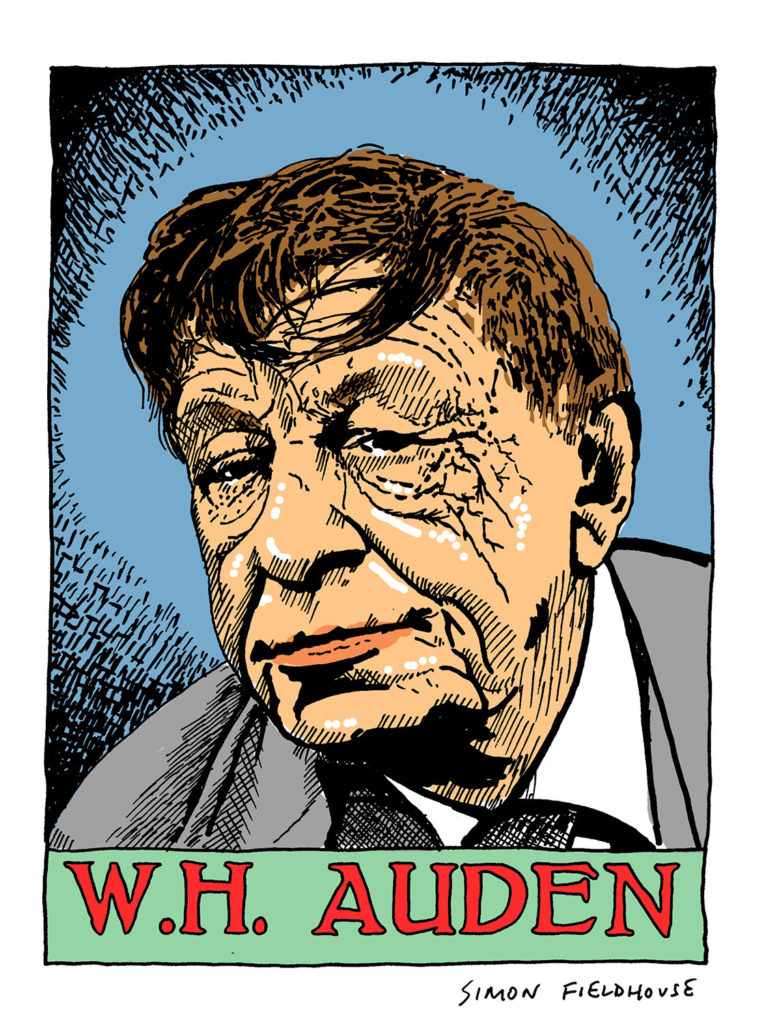
W H Auden
W H Auden was an English poet, who later became an American citizen. He is best known for love poems such as "Funeral Blues," poems on political and social themes such as "September 1, 1939" and "The Shield of Achilles," poems on cultural and psychological themes such as The Age of Anxiety, and poems on religious themes such as "For the Time Being" and "Horae Canonicae."[3][4][5] He was born in York, grew up in and near Birmingham in a professional middle-class family. He attended English independent (or public) schools and studied English at Christ Church, Oxford. After a few months in Berlin in 1928–29 he spent five years (1930–35) teaching in English public schools, then travelled to Iceland and China in order to write books about his journeys. In 1939 he moved to the United States and became an American citizen in 1946. He taught from 1941 to 1945 in American universities, followed by occasional visiting professorships in the 1950s. From 1947 to 1957 he wintered in New York and summered in Ischia; from 1958 until the end of his life he wintered in New York (in Oxford in 1972–73) and summered in Kirchstetten, Austria.
Auden's poetry was noted for its stylistic and technical achievement, its engagement with politics, morals, love, and religion, and its variety in tone, form and content.[6][7][8][9] He came to wide public attention at the age of twenty-three, in 1930, with his first book, Poems, followed in 1932 by The Orators. Three plays written in collaboration with Christopher Isherwood in 1935–38 built his reputation as a left-wing political writer. Auden moved to the United States partly to escape this reputation,[10] and his work in the 1940s, including the long poems "For the Time Being" and "The Sea and the Mirror," focused on religious themes. He won the Pulitzer Prize in Poetry for his 1947 long poem The Age of Anxiety, the title of which became a popular phrase describing the modern era.[11] In 1956–61 he was Professor of Poetry at Oxford; his lectures were popular with students and faculty and served as the basis of his 1962 prose collection The Dyer's Hand.